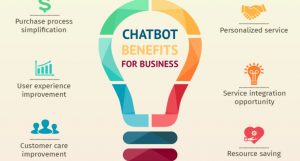It is undeniable that web development is an incredibly lucrative career path for many aspiring developers. The industry never ceased to grow, and continues to produce high-paying jobs in numerous sectors such as AI Powered e-commerce, the gaming industry, and the automotive industry. It’s not surprising to see tech giants like Amazon, Facebook and Google spend billions on development talent in order to stay competitive with their market rivals. As a developer, you can choose to work at home or in an office, as well as freelance or work for a start-up. More importantly, it will not be difficult for you to find job offers these days. That’s why we thought that it is the right time to share with you some useful tips and advice on how you can become a professional web developer.
It is undeniable that web development is an incredibly lucrative career path for many aspiring developers. The industry never ceased to grow and continues to produce high-paying jobs in numerous sectors such as AI Powered e-commerce, the gaming industry, and the automotive industry. It’s not surprising to see tech giants like Amazon, Facebook, and Google spend billions on developing talent to stay competitive with their market rivals.
As a developer, you can choose to work at home or in an office, as well as freelance or work for a start-up. More importantly, it will not be difficult for you to find job offers these days. That’s why we thought that it is the right time to share with you some useful tips and advice that you can learn from the best web developers.
5 Things You Should Know About Web Development
Why do businesses hire web developers?
There aren’t many common issues that private businesses and non-profit organizations have to face every day. However, this doesn’t mean that there aren’t issues related to the way their websites are developed, and it is much more challenging to solve them compared to some other areas of catering. After all, developing a business website can boost small business sales – but only if executed correctly.
The reason why businesses hire web developers most of the time is that they want their website(s) to reach higher customer satisfaction ratings. If you want to become a web developer, your primary goal should be to meet the needs of your clients. Here are some tips to help put you on the path to success.
1. Start with HTML, CSS, and JS
HTML, CSS, and JavaScript are the three most fundamental building blocks that every web developer should be familiar with. HTML and CSS will be used to create interfaces. Simply right-click on your browser and select View Page Source from the context menu. There will be a lot of HTML tags used in the creation of your website.
On the frontend, CSS is also used to determine the style, design, layout, and display of HTML elements on the screen.
Javascript can bring your HTML sites to life and engage your visitors in new and exciting ways. Javascript comes with a variety of languages, including PHP, Python coding, and ASP.Net, to make your website more dynamic. You’ll spend a lot of time learning and mastering this language, which will be your frontend and backend language, with MEAN or MERN stacks like javascript.
2. Git and Github Are Your Friends
Git is the primary version control solution used by the vast majority of businesses. If you get a job as a web developer, you will almost certainly have to deal with version control. It is necessary to have a working knowledge of Git and some fundamental tasks such as cloning, pushing to repositories, making a pull request, and merging branches.
By pushing your Git repositories to Github, you can host your code there. It’s a tool for developers to use to collaborate on projects.
3. Pay Attention to Browser DevTools
You can do a lot more with browser DevTools than just debugging, changing HTML elements and CSS properties, inspecting a device, and tracking a javascript issue. When using DevTools, developers must be aware of how to use all of the available tabs (e.g., elements, console, network). DevTools can be used in any browser, including Chrome DevTools, Firefox DevTools, and others. It is up to the developer to choose which browser he or she will use to develop and test the web application, but most people use Chrome DevTools.
4. Get Comfortable with APIs
There are a lot of APIs in web development, which means you’ll be dealing with data from other sources. Some of the functionality can be used without revealing the source code to other developers. On Github, there is a fantastic repository of APIs that can be used for a variety of projects and serve as inspiration for new ones. By clicking on the link, you can gain access to public APIs.
Rest APIs, HTTP request methods (GET, POST, PUT, PATCH, and DELETE), Rest API development, and CRUD operations are all things you should become acquainted with (Create, Read, Update, Delete). The data format (JSON, HTML, or XML) used in the request, as well as a different status code
5. Understand How Authentication Works
You’ll almost certainly need to use user authentication to keep track of who visits a particular website. Users can log in and log out, generate some resources from their account (which user created which resource), and ban some pages for non-logged-in users. Users must be able to authenticate themselves to keep their accounts secure. As a result, understanding how to handle such features in your online application is critical.
Depending on the programming language or technology used, user authentication can be implemented in a variety of ways. If you’re using React on the frontend and Node with Express on the backend, you can use JWT (JSON Web Tokens) to authenticate, but it’s more complicated if you’re using PHP. You can also use third-party login services such as Google or Twitter. There are numerous methods for implementing authentication in web development, but it is a critical subject to learn and master.
Conclusion
There are more things that you need to understand before you become a web developer. It’s good to know the basics, but it’s important to grasp the logic of each situation before jumping into the code. Obviously, there will be some things that you will never be able to master, but it is better to have such knowledge than not having any at all.



